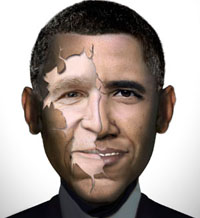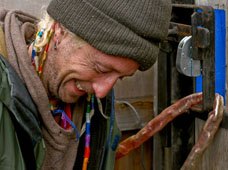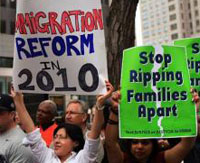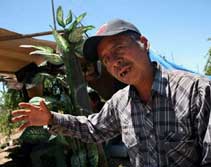
Obama’s War
The U.S. has to concentrate now not on surges, not on wishful thinking, but on beginning the process to pull itself out from Afghanistan. And when it does, all the Europeans, highly relieved, will follow suit.

The U.S. has to concentrate now not on surges, not on wishful thinking, but on beginning the process to pull itself out from Afghanistan. And when it does, all the Europeans, highly relieved, will follow suit.

“The space of play and the space of thought are the two theaters of freedom.” -- Eugen Rosenstock-Huessy
Rosenstock-Huessy was a German army officer in World War I, afterward a professor of medieval law in Breslau until the Nazis acquired the franchise in 1933. Signed for the next year’s season by Harvard University to teach undergraduates the rudiments of Western civilization, he soon noticed that few of them grasped what he was trying to say, couldn’t square the lines of thought with the circle of their emotions. To overcome the difficulties the professor recast his lectures in the idiom of sports and games, the only world, he said, “in which the American student really has confidence… this world encompasses all of his virtues and experiences, affections and interests.”

I scurried up to a higher vantage point to get a better view of the site the activists had just sneaked into and occupied. Most were now sitting in a circle amongst the undergrowth having a planning discussion, while others guarded the locked gate. ‘This is it,’ I thought as the police eventually arrived and started banging aggressively on the nine-foot high wooden gate: ‘It's all gonna kick off!’

It was not surprising that, only weeks after the Vermont legislature voted to close the state’s 40 years old nuclear power plant, Vermont Yankee, Vermont’s largest utilities announced that they were in negotiation with the utility giant Hydro Quebec over a new long-term power contract.

In Creative Community Organizing: A Guide for Rabble-Rousers, Activists and Quiet Lovers of Justice (Berrett-Koehler, February), Si Kahn argues that culture must be integrated into organizing, but he does not always succeed in showing how to do so. He discourages an “add culture and stir” approach, yet the stories he tells—singing to maintain hope while being arrested, designing an organization’s logo to communicate mission, values and inclusivity—are little more than that. And Kahn’s examples of “creative” organizing—such as forming alliances with the faith leaders of a campaign target—strike me as simply good organizing.

Near Reedley, on the east side of the San Joaquin Valley, three men live in a camp they've built under the trees of an abandoned orchard. A blue tarp and the cardboard from an unfolded carton make up the roof. The mattresses for their beds sit on shipping pallets, or nearby under a bush. One of the men made a doll of straw, which sits in the branch of a dead tree overlooking the camp.
Copyright Toward Freedom 2019